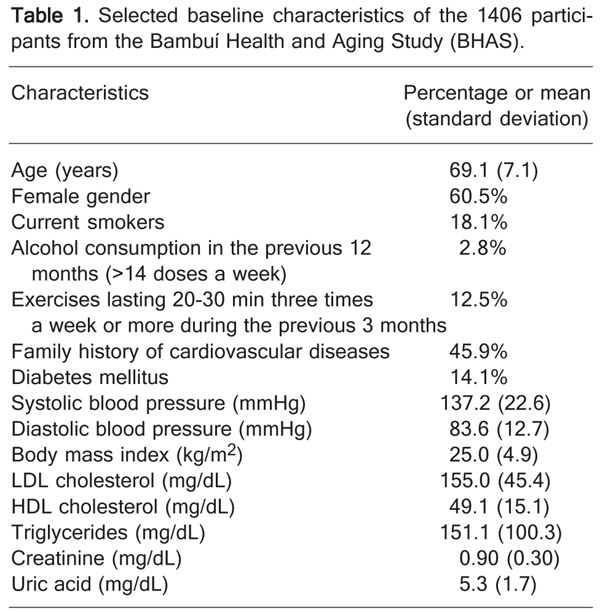Apolipoprotein E (ApoE) polymorphism influences lipid metabolism, but its association with arterial hypertension is controversial. The objective of this study was to examine the association between ApoE polymorphism and prevalent hypertension in a large unselected population of older adults. Participants from the baseline of the Bambuí Health Aging Study whose ApoE genes had been genotyped were selected for this study (N = 1406, aged 60-95 years). These subjects represented 80.7% of the total elderly residents in Bambuí city, MG, Brazil. Hypertension was defined as a systolic blood pressure ³140 mmHg and/or a diastolic blood pressure ³90 mmHg, or the use of anti-hypertensive medication. The exposure variable was the ApoE genotype as follows: e3 carriers, e3e3; e2 carriers, e2e2 or e2e3, and e4 carriers, e3e4 or e4e4. Potential confounding variables were age, gender, traditional cardiovascular risk factors, uric acid, and creatinine levels. The prevalence of hypertension was 61.3%. Compared with the e3 homozygotes, neither the e2 nor the e4 carrier status was associated with hypertension (adjusted prevalence ratios = 0.94, 95%CI = 0.83-1.07 and 0.98, 0.89-1.07, respectively). On the other hand, the e2 allele carriers had lower LDL cholesterol levels (P < 0.001) and the e4 carriers had higher LDL cholesterol levels (P = 0.036). This study provides epidemiologic evidence that the ApoE genotype is not associated with prevalent hypertension in old age.
Apolipoprotein E; Hypertension; Low-density lipoprotein cholesterol; Triglycerides; Lipid metabolism




